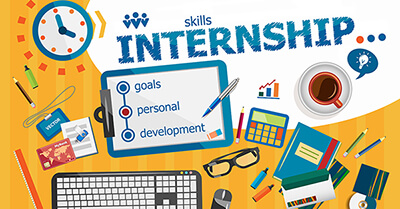Work and Learn as an Intern
 As you write your first resume, you may wonder how you can start learning new job skills and gain experience that will help you as you pursue a fulfilling career.
As you write your first resume, you may wonder how you can start learning new job skills and gain experience that will help you as you pursue a fulfilling career.
If you're a student or have recently finished school, one option you might consider is an internship.
Internships are short-term work opportunities designed to help you get hands-on experience in a specific work field. During an internship, you can learn more about the day-to day responsibilities of a certain job as you explore a field that interests you.
You've probably heard of summer internships, but internships can range anywhere from 3 to 6 months, and sometimes even longer, and some companies and organizations offer internships throughout the year. And while it's not always the case, many interns are considered for permanent employment when their internship ends.
Make the most of your internship
Are you applying for an internship or about to start one? Follow these tips to help you excel and make the most of the opportunity:
Ask questions: While an internship is a work opportunity, it's also a learning opportunity. The people you work with are there to teach you, but it's up to you to ask for advice. They realize you're new to the field and that they are there to share information to help you learn more.
Volunteer for work: Pay attention to the projects and work going on around you and offer to help someone in the office. Asking to shadow someone during an assignment will show that you want to learn. Don't be afraid to try new tasks. An internship is your opportunity to learn about different parts of the job. Ask for guidance from a peer or supervisor if you need help.
Internships and Wages
While many internships are unpaid, you may find an internship opportunity where you earn wages. Keep in mind that it's important to report your work and earnings to Social Security.
If you're a current student and receive SSI, learn more about the Student Earned Income Exclusion.
Seek constructive criticism: If you help a team complete a project or your supervisor asks you take on a project, requesting feedback on your performance will help you become a stronger team player for future projects. Don't take this feedback as a sign that you're doing a bad job. Instead, take notes and look for ways to improve your performance.
Make new contacts: An internship helps you learn the ins and outs of a job from people who have been in the industry and have experience in the field. In addition to learning how to address challenges you may face in the job, the people you connect with during your internship may prove valuable as references when you apply for jobs in the future. Once your internship ends, maintain this network by keeping in touch with the people you've met and asking if they'd write you recommendation letters.
Reflect on your experience: You and your supervisor may meet regularly or at the beginning and the end of your internship experience, but even if you don't, it's important to evaluate what you learned and did during that time. Throughout the experience, think about the skills you learn, whether it's how to use a type of software or better manage your time. Taking the time to think about what you learned will help as you update your resume and interview for future jobs.
Your internship may teach you that the field you thought you wanted to work in wasn't the right fit for you, and that's okay! Internships are a great way to explore a variety of fields and build new skills and contacts along the way.
Find an Internship
Check out these resources to help you find an internship that interests you:
- Workforce Recruitment Program for College Students with Disabilities (WRP): Sponsored by the U.S. Department of Labor's Office of Disability Employment Policy, the WRP links highly qualified college students and recent graduates with disabilities to federal agencies seeking interns and permanent employees. Learn more in our blog post!
- Emerging Leaders Internship Program for College Students with Disabilities: This program is funded by the UPS Foundation and coordinated by the National Business & Disability Council to help undergraduate and graduate college students with disabilities find internships nationwide.
- Entry Point!: The American Association for the Advancement of Science's internship resource for students with disabilities who are studying science, engineering, mathematics, and computer science.
About Ticket to Work
Social Security's Ticket to Work (Ticket) program supports career development for people ages 18 through 64 who receive Social Security disability benefits (SSI or SSDI) and want to work.
The Ticket program is free and voluntary. It helps people with disabilities move toward financial independence and connects them with the services and support they need to succeed in the workforce. Two people featured in our Ticket to Work success stories started their path to financial independence with internships. Read Josh and Amy’s stories today.
Learn more
To learn more about the Ticket program, call the Ticket to Work Help Line at 866-968-7842 or 866-833-2967 (TTY) Monday through Friday, 8 a.m. to 8 p.m. ET. Ask a representative to send you a list of service providers or find providers on your own with the Ticket program Find Help tool.